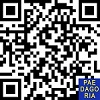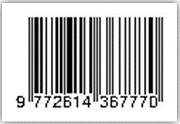Analysis The Effectiveness of E-Learning in Increase Skills Digital Literacy and Shaping Discipline Study Students
Abstract
The rapid development of digital technology in the era of Society 5.0 has transformed students’ learning methods, including through the use of E-Learning. However, at SMK PGRI 13 Surabaya, there are still students who experience difficulties in operating platforms such as Google Classroom, which impacts their digital literacy and learning discipline. This phenomenon highlights the importance of analyzing the effectiveness of E-Learning as a digital learning medium. This study aims to determine the effect of E-Learning use on improving students’ digital literacy skills and shaping their learning discipline. The research is based on the theory of digital literacy and the theory of learning discipline. A correlational quantitative approach was used, employing a survey method. The sample consisted of 250 students from grades X to XII at SMK PGRI 13 Surabaya. The research instruments included the E-Learning Scale, Student Digital Literacy Measure, and ABS. Data were analyzed using descriptive statistics, Pearson correlation, and linear regression tests. The results showed a positive and significant relationship between E-Learning and digital literacy (r = 0.678; p < 0.05) as well as learning discipline (r = 0.592; p < 0.05). In addition, a strong relationship was found between digital literacy and learning discipline (r = 0.641; p < 0.05). Regression analysis indicated that E-Learning contributed 46% to improving digital literacy and 35.1% to students’ learning discipline.
Keywords
Full Text:
PDFReferences
Amri, C., Jaelani, A., & Saputra, H. (2021). Peningkatan Literasi Digital Peserta Didik: Studi Pembelajaran Menggunakan E-Learning. Jurnal Ilmiah Profesi Pendidikan, 6, 546–551. https://doi.org/10.29303/jipp.v6i3.291
Carmines, E. G., & Zeller, R. A. (1979). Reliability and Validity Assessment. SAGE Publications.
Dashtestani, R. (2022). Student Digital Literacy Measure. International Journal of Digital Learning.
Esra, G., & Sevilen, S. (2021). The Impact of E-Learning on Student Motivation and Outcomes. Journal of Educational Research, 44(3), 145–160.
Field, A. (2013). Discovering Statistics Using IBM SPSS Statistics (4th ed.). SAGE Publications.
Gunadi, R. A. A., AlBahra, A. K. H., & Efgivia, M. G. (2022). Impact of E-Learning Utilization on Student Discipline and Its Implications on Student Learning Outcomes in Kayurungin Jaya State School. Journal of Positive School Psychology, 6(2), 99–108.
Guo, M., Guo, Q., Wang, L., & Morawska, A. (2021). Academic Behavior Scale: Development and Validation of a New Measure. International Journal of Educational Research, 109, 101801. https://doi.org/10.1016/j.ijer.2021.101801
Hariono, A., Lismadiana, Purwanto, S., & Widiyanto. (2017). Pembinaan Cabang Olahraga Pencak Silat Prestasi di Daerah Yogyakarta Istimewa (pp. 53–54).
Harjono, H. S. (2018). Digital Literacy: Prospects and Implications in Learning Language. Pena: Journal of Language and Literature Education, 8(1), 1–7.
Hasanah, M., & Fadilah, H. F. (2022). Connection of Online Learning Against Behavior Discipline Students in Activities Studying in Class XI MAN 2 Banjarmasin. Al-Kamilah: Journal of Islamic Educational Guidance and Counseling, 1(1), 1–16.
Kumar Basak, S., Wotto, M., & Belanger, P. (2018). E-Learning, M-Learning and D-Learning: Conceptual Definition and Comparative Analysis. E-Learning and Digital Media, 15(4), 191–216. https://doi.org/10.1177/2042753018785180
Lin, J.-W., Tsai, C.-W., & Hsu, C.-C. (2023). A Comparison of Computer-Based and Game-Based Formative Assessments: A Long-Term Experiment. Interactive Learning Environments, 31(2), 938–954. https://doi.org/10.1080/10494820.2020.1815219
Misbah, W. A. P., Hartini, S., & Dewantara, D. (2018). Development of Schoology-Based E-Learning on Impulse and Momentum Material for Train Digital Literacy. Journal of Physics Education.
Muasyaroh, H. (2020). The Role of Digital Literacy, Attitudes towards E-Learning, and Task Value towards Students’ Self-Regulated Learning in Distance Learning.
Sandybayev, K. (2020). E-Learning Effectiveness in Higher Education: A Study of Business Course Students. International Journal of Educational Technology, 8(2), 32–47.
Siddiq, F., Scherer, R., & Tondeur, J. (2016). Teachers’ Emphasis on Developing Students’ Digital Information and Communication Skills (TEDDICS): A New Construct in 21st Century Education. Computers and Education, 92–93, 1–14. https://doi.org/10.1016/j.compedu.2015.10.006
Sriyanto, B. (2021). Improving 4C Skills with Digital Literacy at SMP Negeri 1 Sidoharjo. Journal Didactics of Elementary Education, 5(1), 125–142.
Valverde-Berrocoso, J., Garrido-Arroyo, M. D. C., Burgos-Videla, C., & Morales-Cevallos, M. B. (2020). Trends in Educational Research About E-Learning: A Systematic Literature Review (2009–2018). Sustainability, 12(12), 5153. https://doi.org/10.3390/su12125153
Zimmerman, B. J. (2002). Becoming a Self-Regulated Learner: An Overview. Theory Into Practice, 41(2), 64–70. https://doi.org/10.1207/s15430421tip4102_2
DOI: https://doi.org/10.31764/paedagoria.v16i4.33928
Refbacks
- There are currently no refbacks.
Copyright (c) 2025 Meliana Margareta

This work is licensed under a Creative Commons Attribution-ShareAlike 4.0 International License.
Paedagoria : Jurnal Kajian, Penelitian dan Pengembangan Kependidikan
Fakultas Keguruan & Ilmu Pendidikan | Universitas Muhammadiyah Mataram.
_______________________________________________
 | Paedagoria : Jurnal Kajian, Penelitian dan Pengembangan Kependidikan |
______________________________________________
CURRENT INDEXING:
EDITORIAL OFFICE:


















